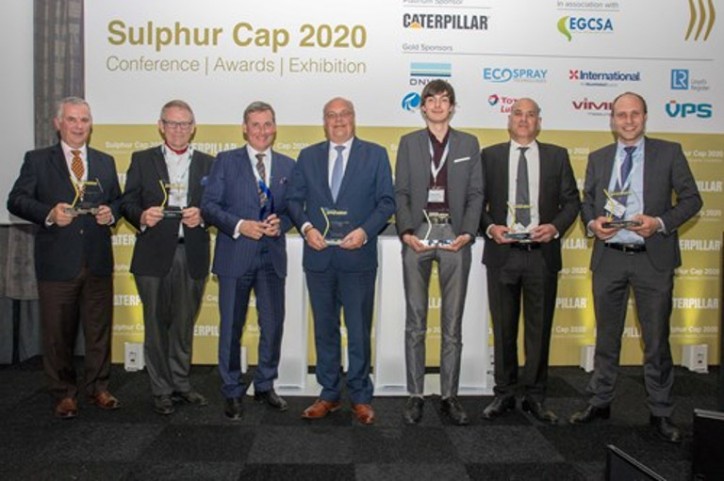Winterthur Gas & Diesel (WinGD) celebrates Emissions Reduction Award win on the heel of the new IMO 2050 targets
WinGD took home the Marine Propulsion Emissions Reduction Award last week, in Amsterdam, during the Sulphur Cap 2020 Conference. The Emissions Reduction Award is awarded for an innovation that can “demonstrate actual or potential reductions in emissions as a result of its implementation.”

Rolf Stiefel, Vice President, Sales & Marketing, WinGD, upon hearing of their successful win said: “Winning this award just days after the latest MEPC meetings in London is a strong indication that WinGD continues to drive sustainable innovation in the two-stroke market. We are committed to achieving these new GHG emissions targets while continuing to provide reliable, cost effective products to the shipping industry. This is an important step forward for the environment. This award is a vote of confidence, confirming that we’re well positioned for the industry changes ahead.”
WinGD’s X-DF technology is designed to reduce emissions far below the IMO Tier III limits, utilising their signature high efficiency, reliable, low-pressure gas admission system.
In November 2017, CMA CGM announced it would outfit its new mega vessels with WinGD 12X92DF engines, rated 63,840 kW at 80 rpm, making them the most powerful gas and dual-fuel engines ever built. X-DF engines are the only marine low-speed engines able to operate with low-pressure natural gas, which complies with IMO Tier III NOX limits, without requiring after treatment systems or complex engine technologies.
“Given our 120 year history in the design of merchant ship propulsion, we embrace our responsibility in improving the environmental footprint of the shipping industry. It is this outcome that continues to drive our innovation and collaborative partnerships as we seek to discover further revolutionary solutions. The new targets set by the IMO are an important step to drive the maritime energy transformation. We know that by working together, with our industry partners in a global perspective, we will achieve these goals. Our current technology proves that we are on the right track and we remain optimistic as we face these 2050 targets.” Dominik Schneiter, Vice President, Research and Development, WinGD added.
Source: WinGD